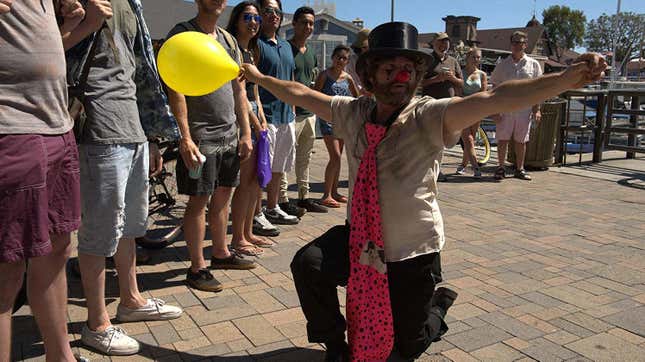

Baskets, an FX show that ended Thursday night, is a program that, like many in the overcrowded prestige television space, I know only in passing. The ads for the most recent season—its final one—briefly plagued the subway station by my workplace: a melancholy Zach Galifianakis in clown makeup, gazing softly into the middle distance in a way that is meant to convey seriousness. I have never watched an episode of the show, likely because of my lack of interest in clowns and also the firehose nature of television in 2019. Every show has the potential to be the next Big Thing, and that pressure is exhausting for both viewer and creator alike. Opting out of the churn is one way to manage stress levels; instead of getting really into Succession or watching The Sopranos for the first time, making the choice to watch HGTV on demand feels like the most valuable form of self-care. However, Baskets has been a series that for its entire duration, has confounded me, popping up mostly during awards season as a nominee, and occasionally winning, as comedian Louie Anderson did in 2016 for his role as Mrs. Baskets. A large part of me wishes that was a sentence I didn’t have to think about, but the rest of me is extremely curious. What is Baskets and why?
-

-

-

-

-

-

-

-

-

-

-

-

-

-

-

-

-

-

-

-

-

-

-

-

-

-

-

-

-

-

-

-

-

-

-

-

-

-

-

-








































